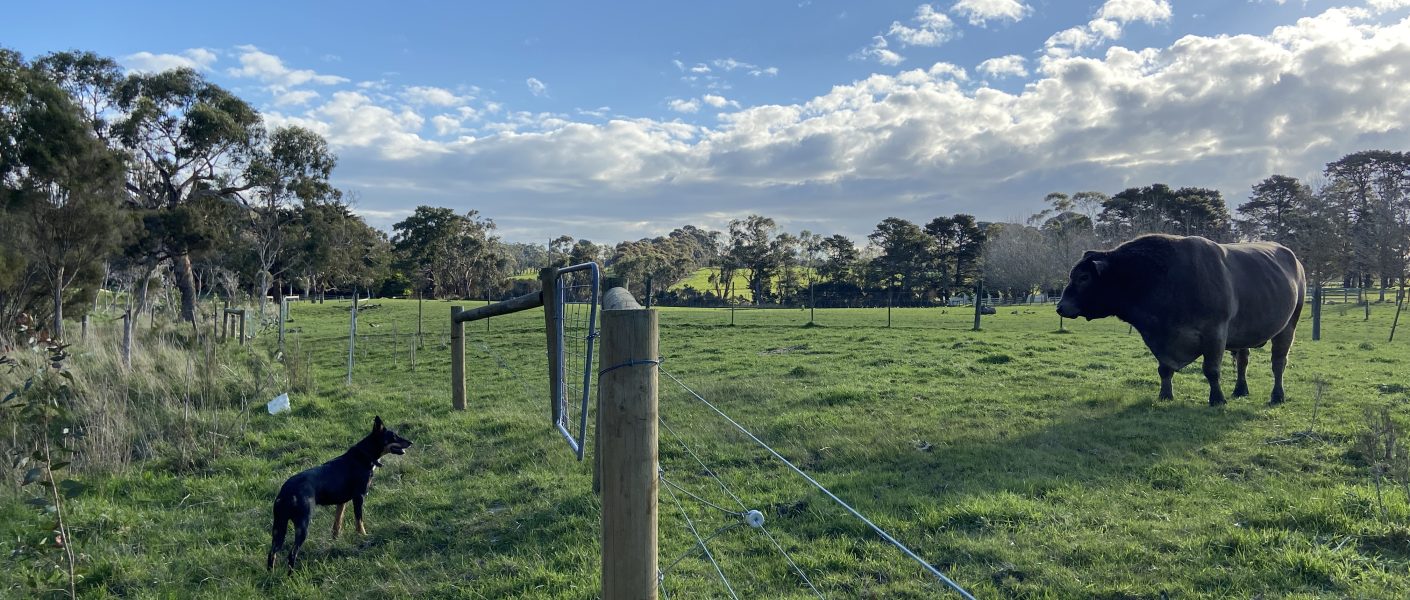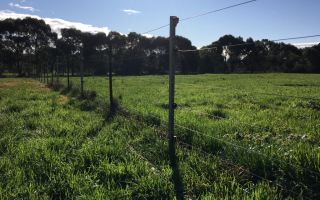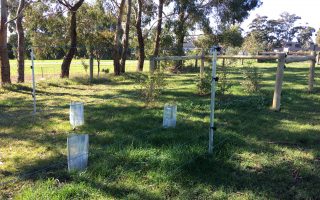Did you know that not all fences are created equally? At least when it comes to containing livestock they aren’t! What might be able to contain cattle might not be able to contain sheep, chickens, dogs or goats and vice versa. And of course it’s important to have the right fencing before you get your animals, because finding out your fence isn’t right after they’ve gone next door or onto the road could be a nasty shock, not to mention expensive to replace, repair or modify.

So how do you know what is the right fence for your animals?
There are two types of fence – physical barriers and psychological barriers. Physical barriers act to physically keep an animal in a certain area by preventing them from being able to get over, under or through it. Examples of this could include barbed wire, mesh fencing, post and rail. Psychological barriers use electric wires to train animals that to touch them will make them uncomfortable.
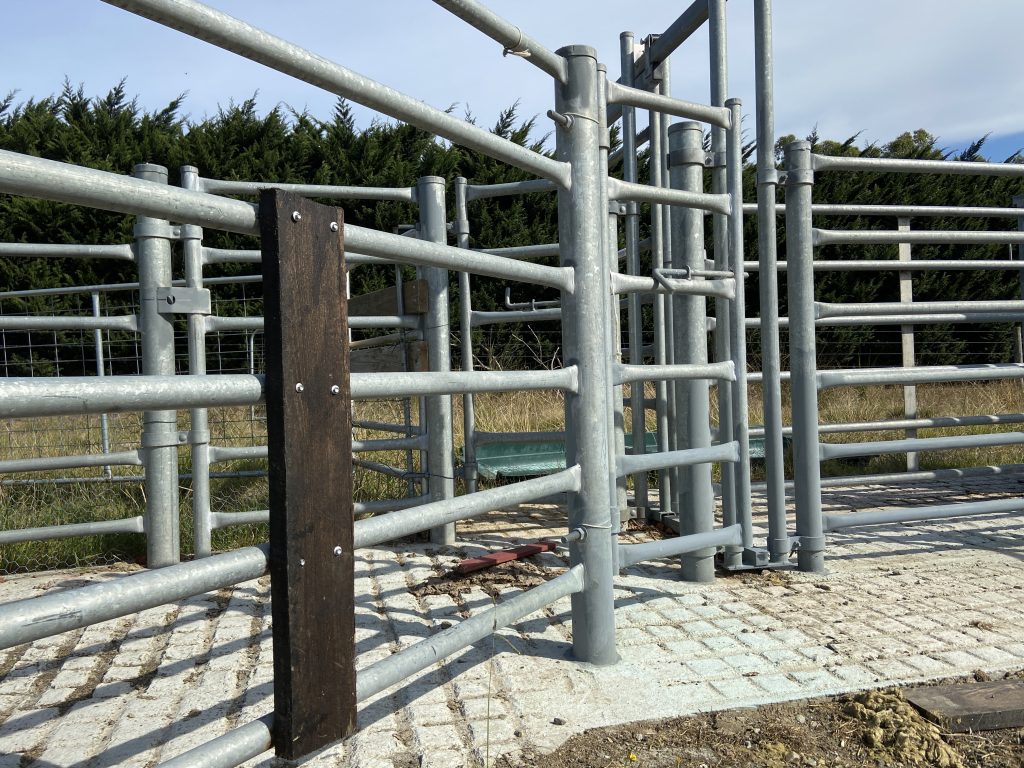
First consider what type of animals you will have.
Some animals such as sheep may spend part of the year with insulation protecting them from the effect of electric wires. Other animals such as goats can be accomplished escape artists and able to jump fences. Larger animals such as cattle can exert more pressure on fences purely due to their size and weight. Smaller animals such as chickens can fit through small gaps in fences, as well as possibly even fly over shorter fences. Other animals may have horns that can get caught in some types of fences. Look at the physical attributes of the animals you are considering, and try to factor this into your fence construction.
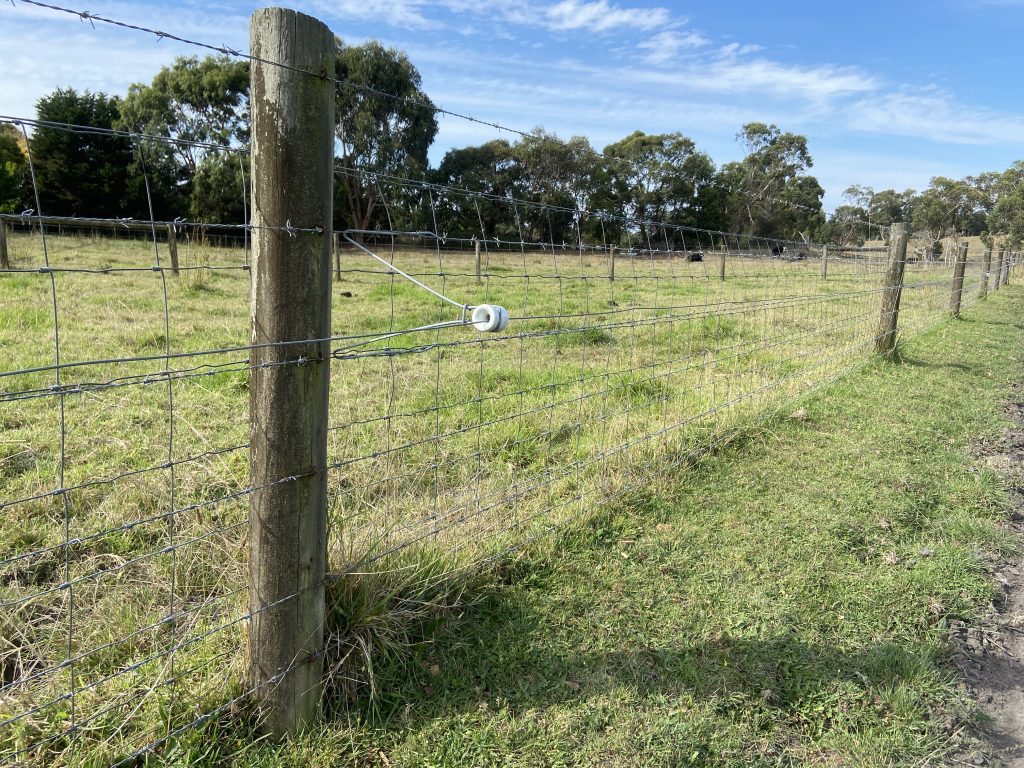
Next think about the age of your animals.
Whilst adult sheep cannot fit through sheep mesh, determined or curious lambs can purely because they are smaller. Lambs and kids are also far more vulnerable to predators such as foxes, so having fences that can keep predators out can also be an important factor to consider. Calves are obviously much smaller than adult cattle, so something that can contain their mother may not be able to contain a calf.

Other factors to consider
Another factor to consider is whether you are working with existing fences, or starting from scratch. Older physical fences could benefit from having an electric stand off added to them. Newly constructed fences can have live wires incorporated directly into them. Fences that may have long stretches between posts may require droppers being inserted between posts. These act to help prevent animals from pushing between wires by maintaining the distance between wires.
Boundary fences often need to be a little more robust than internal fences. Whilst it can be annoying if your animals go through an internal fence, at least they are still on your property. Livestock on neighbouring properties or even roads can be dangerous, so ensuring your boundary fences are more than just good is incredibly important.
Some fencing materials can be damaging to certain animals. Horses often need special fencing, and barbed wire can rip or hurt if pressure is applied whilst moving against it. Live wires with too much kick can kill smaller animals that get caught on them.
How to plan the best fence?
- Try talking with locals about what works for them.
- Specialist breeders may have found good combinations of fence types that suit their specific requirements. They can be an excellent source of good fencing advice.
- Contact local fencers to see what sorts of fences they install for different livestock.
- Ask to speak with a representative from fence product providers. They will often have a deep understanding of the fencing needs of different livestock.
- Talk with an agricultural consultant such as Calmer Farmer for their advice on what could work for your specific situation.
Remember that the best fence for you is the one that keeps your livestock where you want them, first time around!
Cheers and happy farming!
Chris

